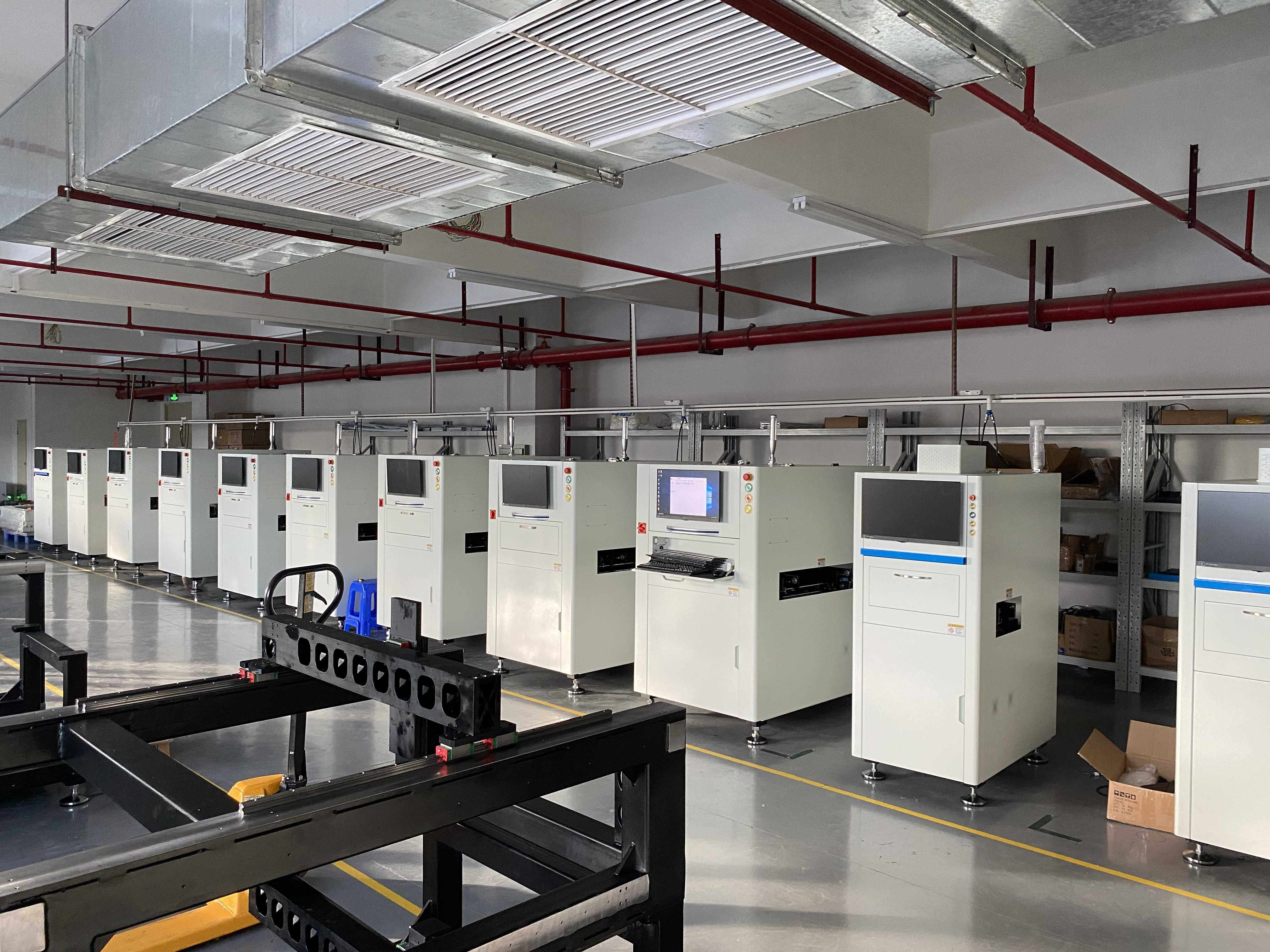メールフォーマットエラー
emailCannotEmpty
emailDoesExist
pwdLetterLimtTip
inconsistentPwd
pwdLetterLimtTip
inconsistentPwd


How to Integrate Industry 4.0 Technologies with Wholesale SMT Line Machines
In the rapidly evolving landscape of manufacturing, the integration of Industry 4.0 technologies has become imperative for staying competitive and maximizing efficiency. Nowhere is this more evident than in the realm of Surface Mount Technology (SMT) assembly lines, where precision, speed, and automation are paramount. In this comprehensive guide, we'll explore how wholesale SMT line machines can harness the power of Industry 4.0 technologies to revolutionize production processes, enhance quality control, and drive innovation.
Understanding Industry 4.0: The Future of Manufacturing
Before delving into the specifics of integrating Industry 4.0 technologies with wholesale SMT line machines, it's essential to understand what Industry 4.0 entails. Often referred to as the Fourth Industrial Revolution, Industry 4.0 represents the convergence of digital technologies, data analytics, and automation to create smart, connected, and autonomous manufacturing systems. It encompasses a wide range of technologies, including the Internet of Things (IoT), artificial intelligence (AI), machine learning, robotics, and cloud computing, all working together to optimize efficiency, flexibility, and productivity in manufacturing processes.
The Role of SMT Line Machines in Electronics Manufacturing
Surface Mount Technology (SMT) assembly lines play a critical role in the production of electronic components and devices. These automated production lines are responsible for placing and soldering surface-mounted components onto printed circuit boards (PCBs) with precision and efficiency. Wholesale SMT line machines, equipped with advanced pick-and-place systems, soldering equipment, and inspection tools, enable manufacturers to mass-produce high-quality electronics with minimal human intervention. However, to remain competitive in today's fast-paced market, SMT assembly lines must adapt to the demands of Industry 4.0 and embrace digital transformation.
Harnessing the Power of Data Analytics and Connectivity
One of the key pillars of Industry 4.0 is data analytics, which involves collecting, analyzing, and leveraging data from various sources to optimize manufacturing processes and make data-driven decisions. In the context of wholesale SMT line machines, data analytics can provide valuable insights into machine performance, production efficiency, defect rates, and quality control. By integrating sensors and monitoring systems into SMT assembly lines, manufacturers can gather real-time data on equipment status, production metrics, and component quality, enabling proactive maintenance, predictive analytics, and continuous process improvement.
Embracing Predictive Maintenance and Condition Monitoring
Predictive maintenance is another crucial aspect of Industry 4.0 that can revolutionize the way wholesale SMT line machines are managed and maintained. By leveraging machine learning algorithms and predictive analytics, manufacturers can anticipate equipment failures and performance issues before they occur, minimizing downtime and maximizing uptime. Condition monitoring systems can monitor key parameters such as temperature, vibration, and lubrication levels, providing early warnings of potential problems and enabling timely maintenance interventions. This proactive approach to maintenance not only reduces repair costs and extends equipment lifespan but also ensures consistent production output and product quality.
Implementing Smart Manufacturing Practices
At the heart of Industry 4.0 is the concept of smart manufacturing, which involves the integration of intelligent systems, processes, and technologies to create a connected and adaptive manufacturing ecosystem. In the context of wholesale SMT line machines, smart manufacturing practices enable seamless communication and collaboration between machines, operators, and other manufacturing systems. For example, AI-driven algorithms can optimize production scheduling and resource allocation based on real-time demand forecasts and production priorities. Robotics and automation technologies can streamline material handling, assembly, and inspection tasks, reducing cycle times and labor costs. Cloud-based platforms can facilitate remote monitoring, control, and analysis of SMT assembly line operations, allowing manufacturers to oversee multiple production facilities from anywhere in the world.
Conclusion: Driving Innovation and Efficiency with Industry 4.0
In conclusion, the integration of Industry 4.0 technologies with wholesale SMT line machines holds tremendous potential for driving innovation, efficiency, and competitiveness in electronics manufacturing. By harnessing the power of data analytics, predictive maintenance, smart manufacturing practices, and connectivity, manufacturers can optimize production processes, improve product quality, and respond quickly to changing market demands. As we continue to embrace the principles of Industry 4.0, wholesale SMT line machines will play a pivotal role in shaping the future of electronics manufacturing, paving the way for smarter, more agile, and more sustainable production systems.
Ready to take your electronics manufacturing to the next level with Industry 4.0? Contact us today to explore our range of wholesale SMT line machines and embark on a journey of digital transformation and innovation.

